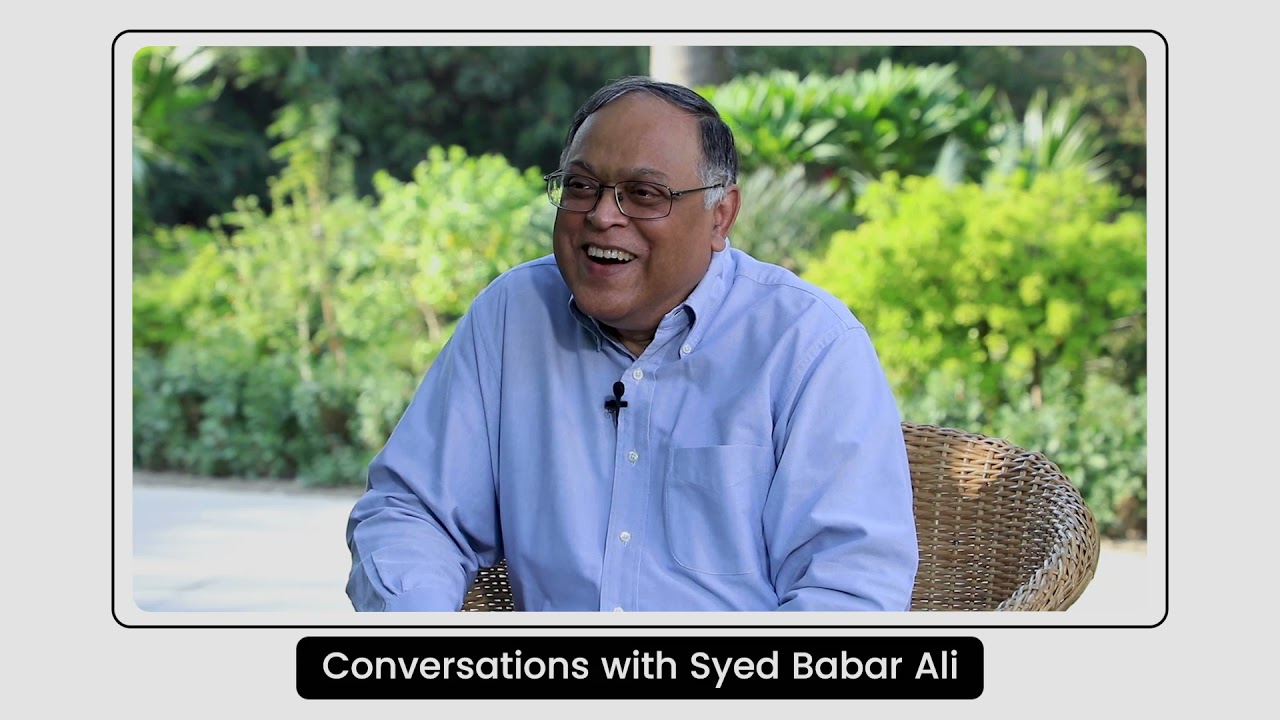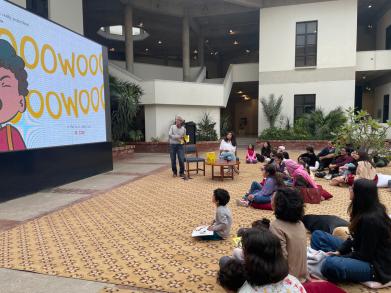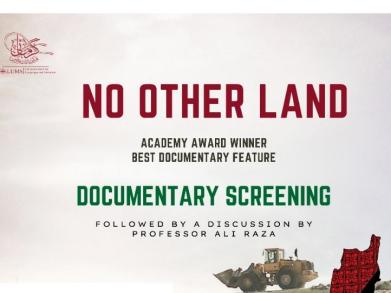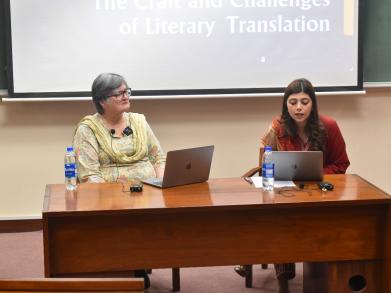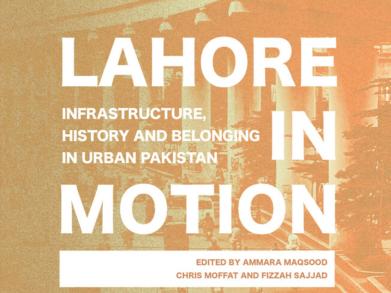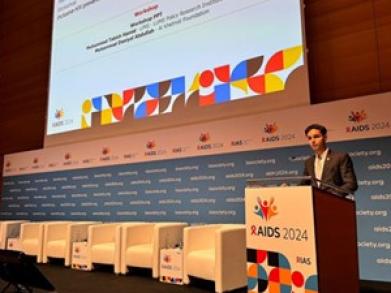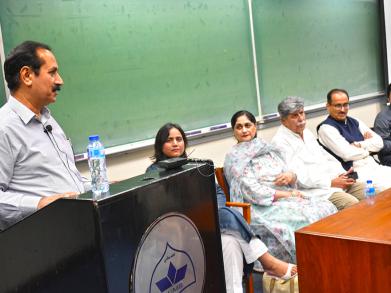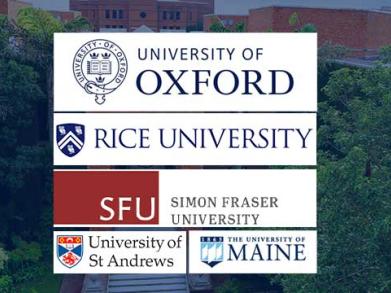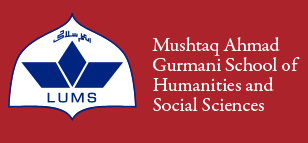“The Matter of the Humanities” LUMS English Symposium
Bringing together academics and research scholars from over six higher education institutions in Punjab, the LUMS English Department held its interdisciplinary symposium “The Matter of the Humanities”, on the 27th and 28th of September, 2024. Organised by Dr. Tom Sewel and Dr. Farah Hasan Ali, and attended by LUMS faculty and students from various research backgrounds, the English Symposium provided a space for an exchange of ideas and pedagogical techniques geared towards advancing the humanities in Pakistan. Research papers covering a wide range of issues and innovative ideas were brought forth to explore with keen-eyed sensitivity how the humanities engender new ways of knowing and being human.
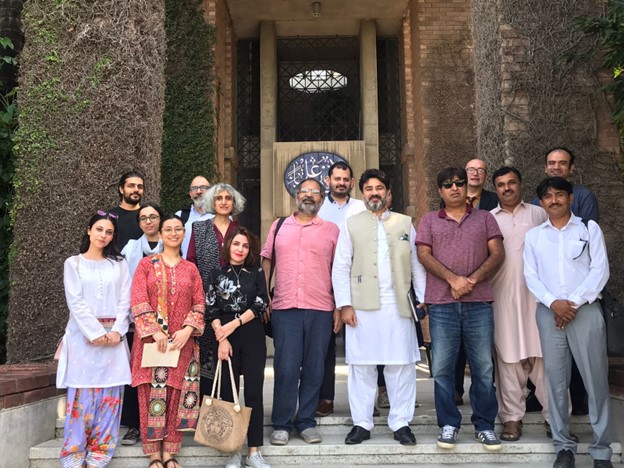
On Friday, the first panel “Mind and Matter”, was mediated by Dr. Sadia Zulfiqar, (Assoc. Prof, HSS) presenting papers by Dr. Shahzeb Khan (Assoc. Prof, UoP), Dr. Qurratalaen Liaqat (Assoc. Prof, Head of English at FCCU), and Ms. Asfa Zia (Lecturer in English at FCCU). Dr. Shahzeb Khan’s paper, “Emancipating the Humanities”, addressed postcolonial concerns while Dr. Qurratalaen swiftly segued to posthumanism in her paper “The Posthuman Turn in the Humanities”. Ms. Asfa Zia grounded these theoretical frameworks in her paper on classroom pedagogy, “The Psychology of Literature”. The second panel, “Literature and Liberation” commenced after the break, following a sudden scarcity of umbrellas and lunch at the EDH. Moderated by Dr. Furrukh Khan (Assoc. Prof, HSS), this panel began with a paper by Raza Naeem, a prolific translator entitled “From the Weary Generation to the Wary Generation”. This was followed by Muhammad Izhar Alam Wazir’s paper “Decolonizing Colonial Stereotypes: A Study of Marginality in the Peripheries of Pakistan" which addressed the stubborn remnants of colonisation. Ms. Faiza Zaheer (Asst. Prof in English, FCCU) concluded the panel with her paper "Liberating the Silence: Exposition of Critical Thinking in Literary Studies", after which our guests enjoyed dinner at the Green Olive.
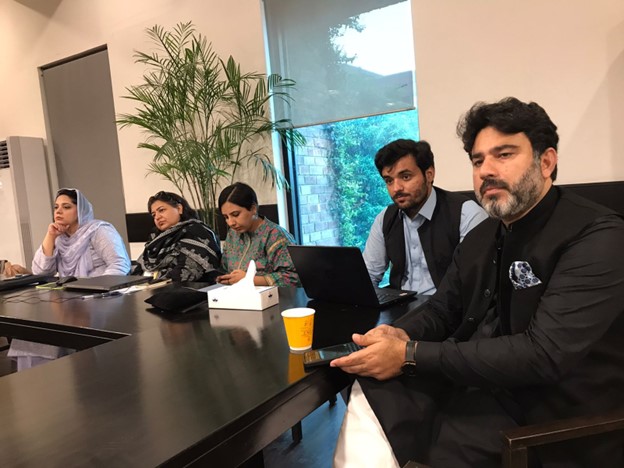
Friday’s eventful program ended with the book launch for Dr. Amina Yaqin’s Gender, Sexuality and Feminism in Pakistani Urdu Writing, which garnered a large and enthusiastic audience. Dr. Amina Yaqin, who is currently an associate professor of World Literatures at the prestigious University of Exeter, focuses her interdisciplinary research on contextualising the lives of the modern Muslim and the politicisation of culture in Pakistan which she addresses in this new edition of her novel. The audience, after hearing Dr. Amina Yaqin’s notes on her book, provided an animated question and answer session that ended the first day of the symposium.
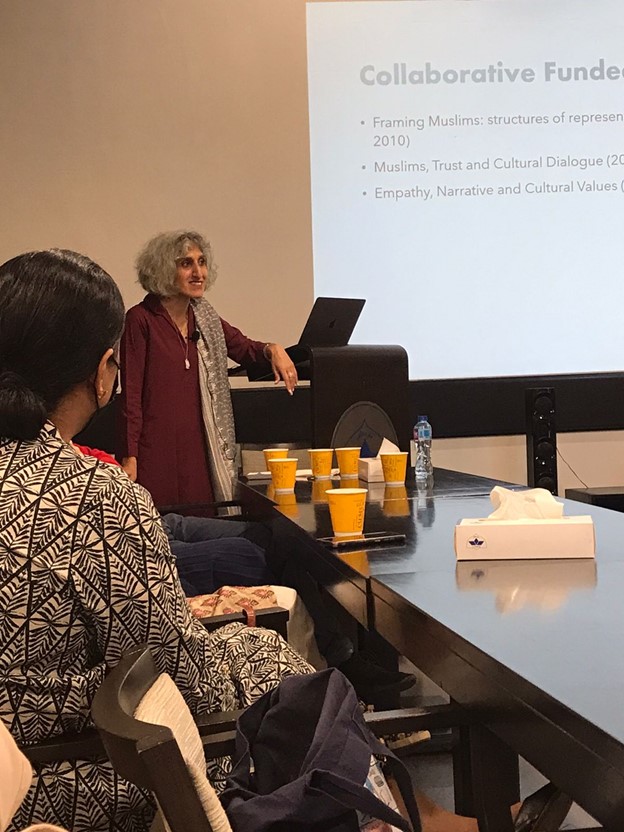
Saturday began with a riveting keynote by Dr. Amina Yaqin entitled “The Crisis of the Humanities and the Politics of Knowledge”. Dr. Amina charted the trajectory of the university as a site of knowledge formation and the replication of Western knowledge systems in the contemporary world. Bringing our attention back to the titular crisis, Dr. Amina made a compelling case for the revival of critical thinking and, in conjunction, the significance of narratives and storytelling in culture production. The symposium offered an opportunity for English seniors to pitch their SPROJ topics to the attendees, receiving a breadth of research avenues, useful resources, and priceless advice over coffee and cookies. The keynote was followed by a lively plenary session moderated by Dr. Farah Ali, Dr. Jahanzeb Rind (Post Doc, History), Dr. Salman Rafi (Assoc. Prof, Pol Sci), and Dr. Tom Sewel. Taking comments and questions from faculty and students alike, Dr. Amina provided valuable insight from her interdisciplinary research, which was supplemented by the expertise of faculty from FCCU, UoP, IIU, Quaid-i-Azam, and the University of Narowal (represented by Mr. Nasar Iqbal). The symposium revelled in an interdisciplinary amalgamation of advanced theory, comprehensive research, and contextualisation, recognizing and celebrating plurality of thought. At length, the plenary session, building on the ideas presented in earlier sessions, provoked some sharp insights into both the matter of the humanities and why the humanities matter.
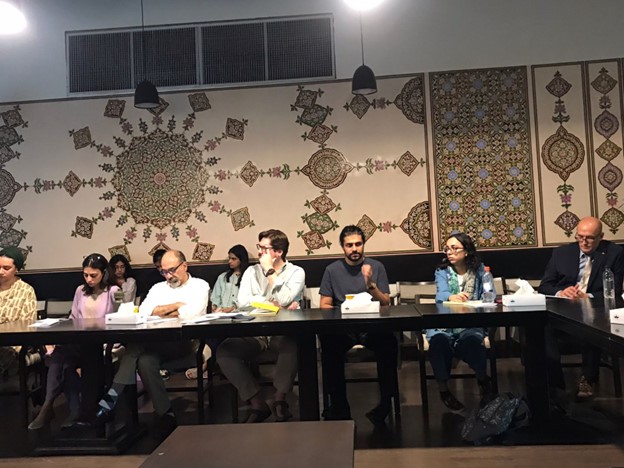
Write-up by English Seniors:





